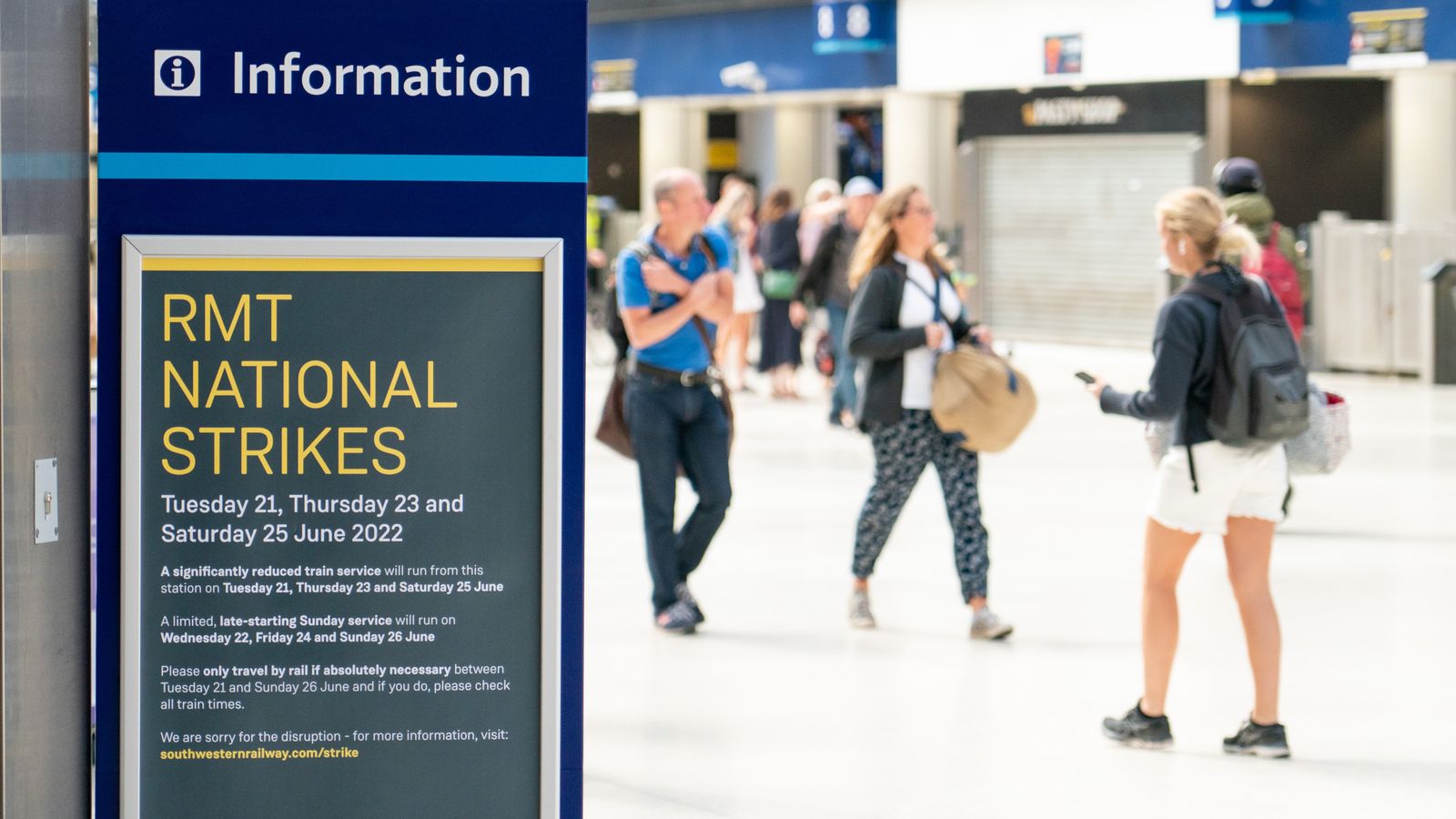Two further days of rail strikes have been announced by the RMT union on 18 and 20 August in the row over jobs, pay and working conditions.
The action will see more than 40,000 workers across Network Rail and 14 train operating companies walking out.
This is in addition to a 24-hour strike by the RMT on 27 July.
General secretary Mick Lynch said: “The rail industry and the government need to understand that this dispute will not simply vanish.
“They need to get serious about providing an offer on pay which helps deal with the cost-of-living crisis, job security for our members and provides good conditions at work.
“We remain open for talks, but we will continue our campaign until we reach a negotiated settlement.”
Andrew Haines, chief executive of Network Rail, said: “By announcing even more strike dates, the RMT has dropped any pretence that this is about reaching a deal.
Second rail strike planned for end of July
Network Rail makes new pay offer to workers after strikes but RMT union calls it a ‘real-terms pay cut’
More disruption on railways as drivers at eight train companies back walkouts
“It’s clear the best interests of passengers and our staff are taking second place to the union’s bosses’ political campaign.”
The companies involved in the RMT strikes are: Network Rail, Chiltern Railways, Cross Country Trains, Greater Anglia, LNER, East Midlands Railway, c2c, Great Western Railway, Northern Trains, South Eastern, South Western Railway, Transpennine Express, Avanti West Coast, West Midlands Trains and GTR (including Gatwick Express).
Earlier, drivers from the Aslef union – who work for eight rail companies – announced they will strike on 30 July.
Mick Whelan, Aslef general secretary, said: “We don’t want to go on strike – strikes are the result of a failure of negotiation – and this union, since I was elected general secretary in 2011, has only ever been on strike, until this year, for a handful of days.
“We don’t want to inconvenience passengers – not least because our friends and families use public transport, too, and we believe in building trust in the railways in Britain – and we don’t want to lose money by going on strike.
“But we’ve been forced into this position by the train companies, driven by the Tory government.
Aslef members at eight companies – Arriva Rail London; Chiltern Railways; Greater Anglia; Great Western; Hull Trains; LNER; Southeastern; and West Midlands Trains – will join the strike action.
But Mr Whelan said that drivers at Greater Anglia would also strike on Saturday 23 July and drivers on Hull Trains would also strike on Saturday 16 July and Saturday 23 July.
Further ballots close at Avanti West Coast and CrossCountry on Wednesday 27 July; and at Northern Trains; TransPennine Express; and Transport for Wales on Thursday 25 August, he added.
Transport Secretary Grant Shapps said: “It’s incredibly disappointing that, just three days after their ballots closed, Aslef bosses have already opted for destructive strike action, instead of engaging in constructive talks.
“Not only that but, by seemingly co-ordinating strike dates around the Commonwealth Games, it’s clear union bosses are determined to cause as much misery as possible and derail an event the whole country is looking forward to.”






